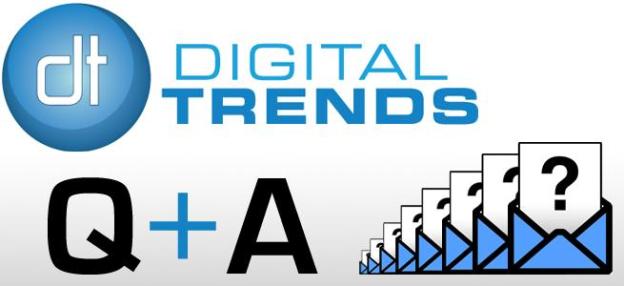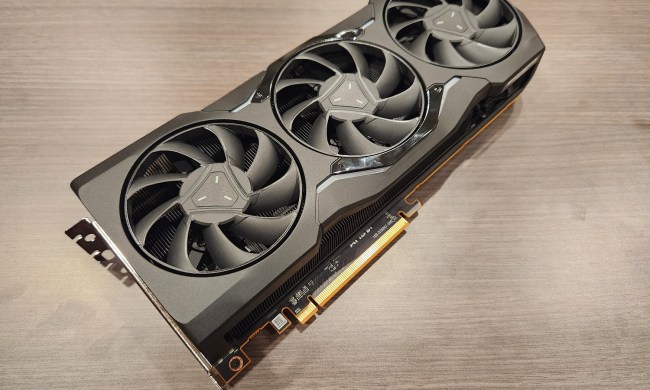 Welcome to the inaugural Ask DT post, where we’ll be answering reader questions you’ve sent in. This week we’ve got a rather technical question about chargers, some ways to placate your Timeline troubles, and the age-old developer query about whether to go Android or iOS. Check out our answers, and be sure to keep sending in your questions to askdt@digitaltrends.com.
Welcome to the inaugural Ask DT post, where we’ll be answering reader questions you’ve sent in. This week we’ve got a rather technical question about chargers, some ways to placate your Timeline troubles, and the age-old developer query about whether to go Android or iOS. Check out our answers, and be sure to keep sending in your questions to askdt@digitaltrends.com.
The need for a voltage converter when abroad
Q: I recently moved from the U.S. to Europe, and I’ve been using a converter/adapter (one that changes the voltage) to power my laptop. I plug the U.S. power cable into the converter, and then plug that, with the adapter prongs for Europe, into the wall outlet. Am I OK continuing to do this, or is the risk of a power surge significant? Thank you! — Sent by “K”
Nick Mokey: 
Why? The laptop’s power supply — that’s the annoying brick in the cord — is already doing the task of stepping wall voltage down to what the computer needs to run, so your other voltage converter is redundant. You’ll actually save electricity (and have one less hot plastic brick at your feet) if you ditch it for a simple plug adapter.
Personally, I’ve never seen a supply that won’t work on both continents, but to make sure absolutely sure before you send your laptop up in flames, look at all the fine print on the back. If you see something like “100-240V 50-60Hz,” listed under “input,” you’re good. Just get ready to squint. It’s the highlighted text in the photo below:

Timeline troubles
Q: Help! I have managed to remove Timeline from Google Chrome and Mozilla Firefox, however I have the Timeline on my mobile app! Is there anyway to remove this? There are way too many glitches and it keeps refreshing and just sucks altogether! Please any suggestions? Hard to believe with so many folks hating the new Timeline that Facebook wouldn’t allow you to have a choice. Any ideas would be great! I’d love to get it off my mobile app! — Sent by “B”
Molly McHugh: Unfortunately, if you’re using the official Facebook app, you’re out of luck. When you’re accessing Facebook via desktop browser, there are lots of toolbar extensions that can get rid of Timeline for you, but no such hack exists for the mobile experience.
However you do have another option, in the form of alternative Facebook apps. Now none of these are going to look exactly like old Facebook did for you, but if you’re seriously bothered by Timeline then they might be a suitable relief.


Or you could join Path.
Developer dilemma: iPhone or Android?
Q: To make this short I am an aspiring mobile developer and I have this weird dilemma. For the past few weeks I have read dozens of articles complaining on Android’s fragmentation and how that is discouraging developers on it’s future. On the other hand I also read that Android has more freedom than iOS and it already has a strong hold on a large chunk of the market. I hope in the future to develop for more than just Android or iOS but for now I’d like some guidance into which operating system to try first. Any helpful opinions? Maybe somebody has experience in developing for Android and iOS. Thanks. — Sent by “F”
Jeffrey Van Camp: Thanks for the question. I am not an active developer myself, but I do follow this stuff closely. It all depends on what kind of app you’re trying to make and what your goals are with it. If you want to program an app once and deliver it to the most phones without much hassle, I’d lean toward the iPhone (30-percent or so marketshare). Apple is sometimes difficult to deal with. I hope you’re not trying to write an app that looks like iBooks, for example. But the App Store is where a lot of apps get their start. With iPhone, you basically only have to write for one phone (and a few older models of that device). If you want to charge money for an app, the iPhone has a userbase that is far more willing to spend a few bucks on an app than Android.

Apple also requires you to use their tools and follow their style-guides, while Android development is a bit more lax. Finally, the iPhone marketplace is full of a lot of very good apps. With Android, there are just as many apps, if not more, but the ratio of good to crap leans in favor of crappy apps. So if you have great UI, you could stand out there better.
Honestly, in time, you will want to be on both. If Windows Phone takes off and BlackBerry survives through 2013, you’ll probably want to consider those as well. I hope that helps!



